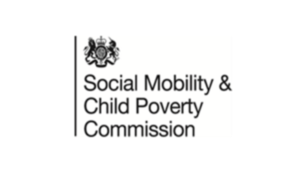Response to government consultation on child poverty measurement
The Social Mobility and Child Poverty Commission's response to the government’s consultation on better measures of child poverty

The Social Mobility and Child Poverty Commission has published its response to the government’s consultation on better measures of child poverty, which makes the case for a new ‘multidimensional approach’ (one based on looking at how many children face a range of overlapping social problems).
The Commission welcomes parts of the proposals: a multidimensional approach could give useful insight into how problems accumulate in children’s lives, and help identify different kinds of poverty. However, any new measure needs to supplement, not replace, the existing framework of the Child Poverty Act, whose relative income measures enable international comparison and drive clear accountability. It also needs to be coherent and understandable if it is to endure. The Commission expresses concern that, in their initial form, the different dimensions in the consultation risk conflating the causes and current experience of poverty in a way that is confusing.
The Commission’s overall recommendation is that the different dimensions are separated out and that the government considers a three-pronged approach to poverty measurement:
• Developing a new multidimensional measure looking at the causes or risks of poverty (e.g. worklessness; parental skills);
• Capturing a richer view of ‘current experience’ of poverty by allying dimensions about ‘poverty now’ (e.g., debt, housing) with the existing relative income-based measures in the Child Poverty Act 2010; and
• Broader improvements to the current measures including: taking better account of benefits in kind like childcare and housing; better capturing depth of income poverty; and developing a new measure looking at really chronic disadvantage.
The Rt Hon Alan Milburn, Chair of the Social Mobility and Child Poverty Commission said:
“How poverty is measured sounds like an abstract, technical question, but it matters a great deal. That’s because it not only describes people’s experience of deprivation, but helps the public hold government to account for their progress in tackling poverty, and influences policy decisions.
In our view, lack of income is central to the experience of poverty and therefore needs to be central to poverty measurement. However, other things matter too. So a broad approach is sensible. Our recommendation would drive better public understanding, improved policy, and clear accountability.”
The Chair also emphasised the importance of continued government activity in this area:
“Whatever the measure, the ultimate priority of course remains action to tackle child poverty. On any view, the commitment in the Child Poverty Act 2010 to end child poverty by 2020 remains extremely challenging. The UK Child Poverty Strategy is due for revision next year. We urge the Government to clarify its position on the 2020 targets and to ensure it has in place a clear plan for how and when it will meet them.”